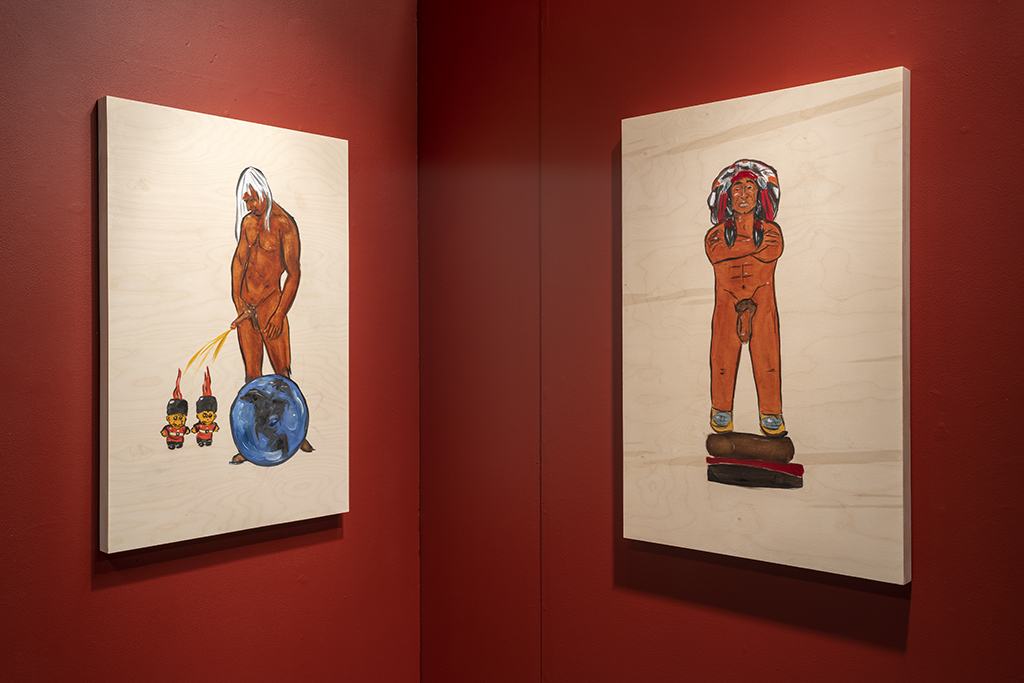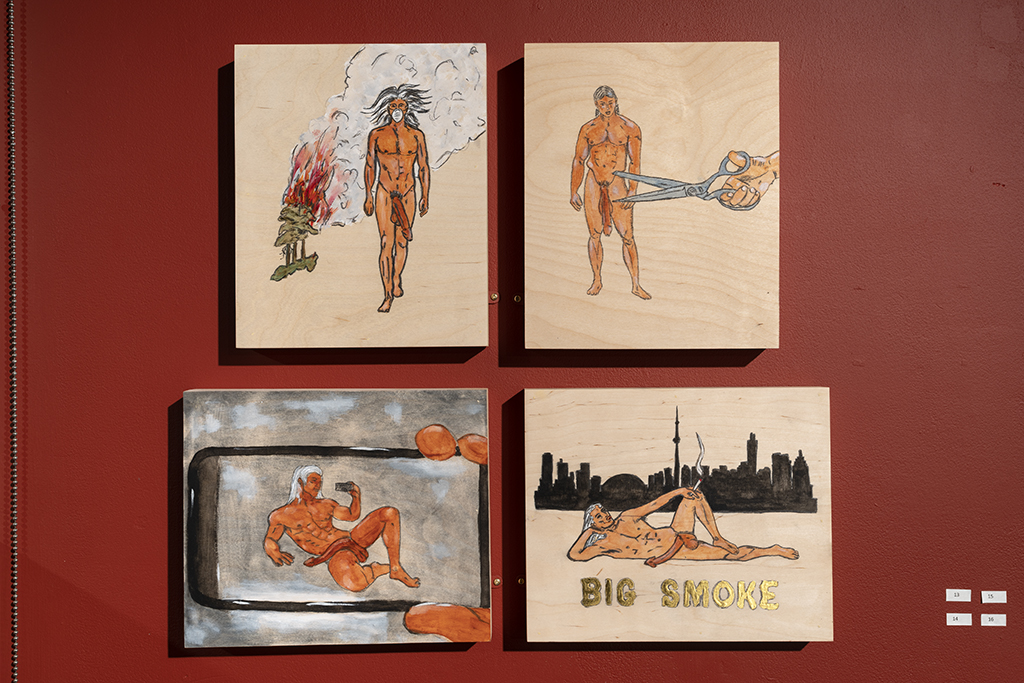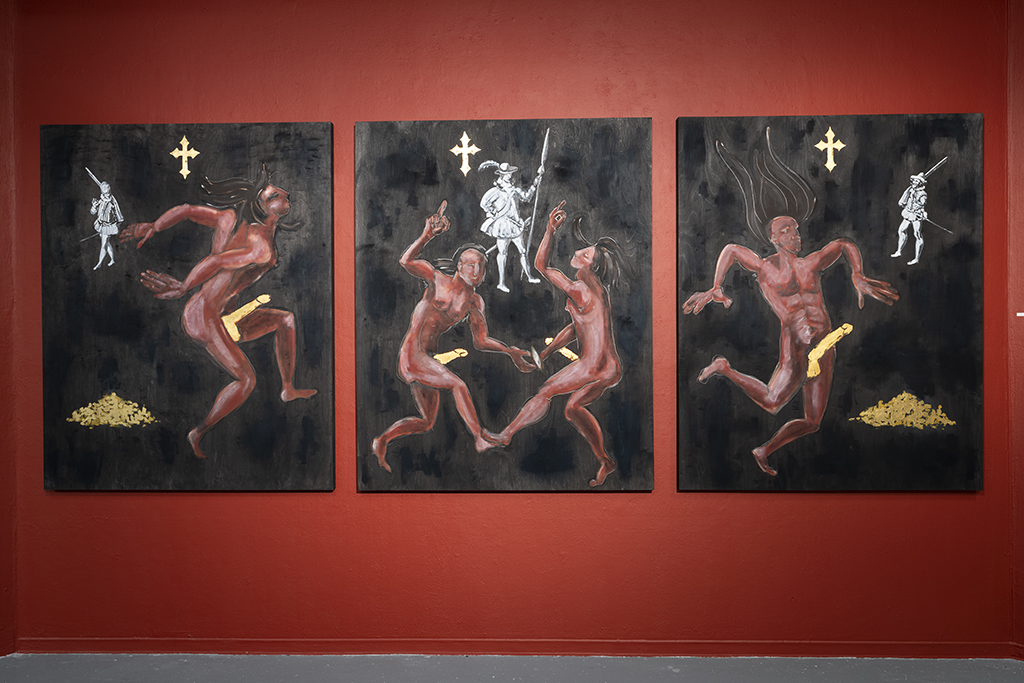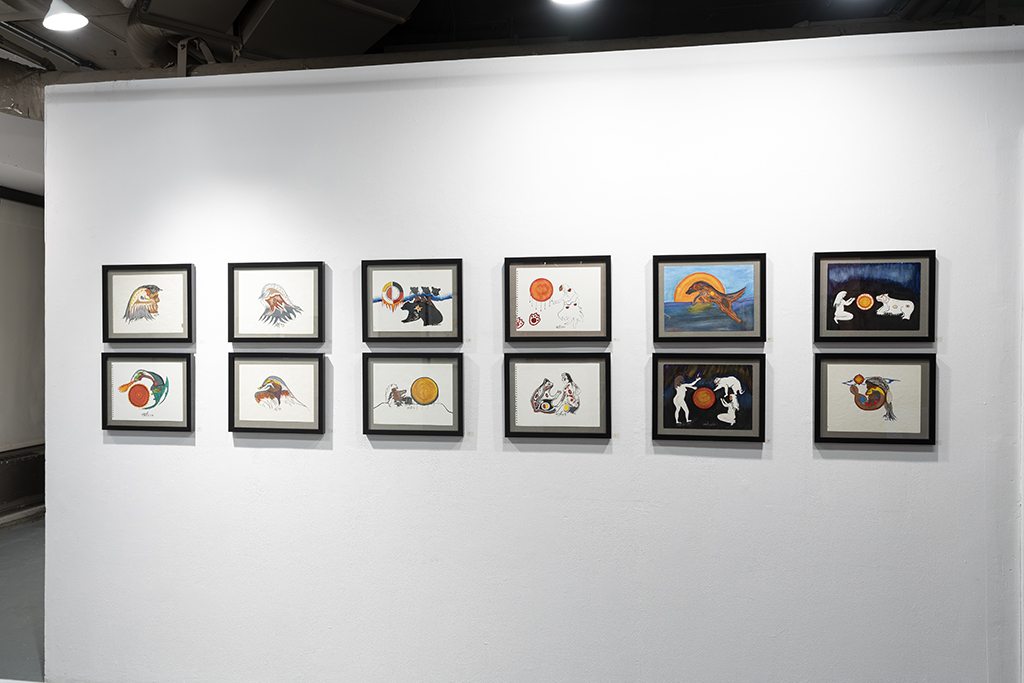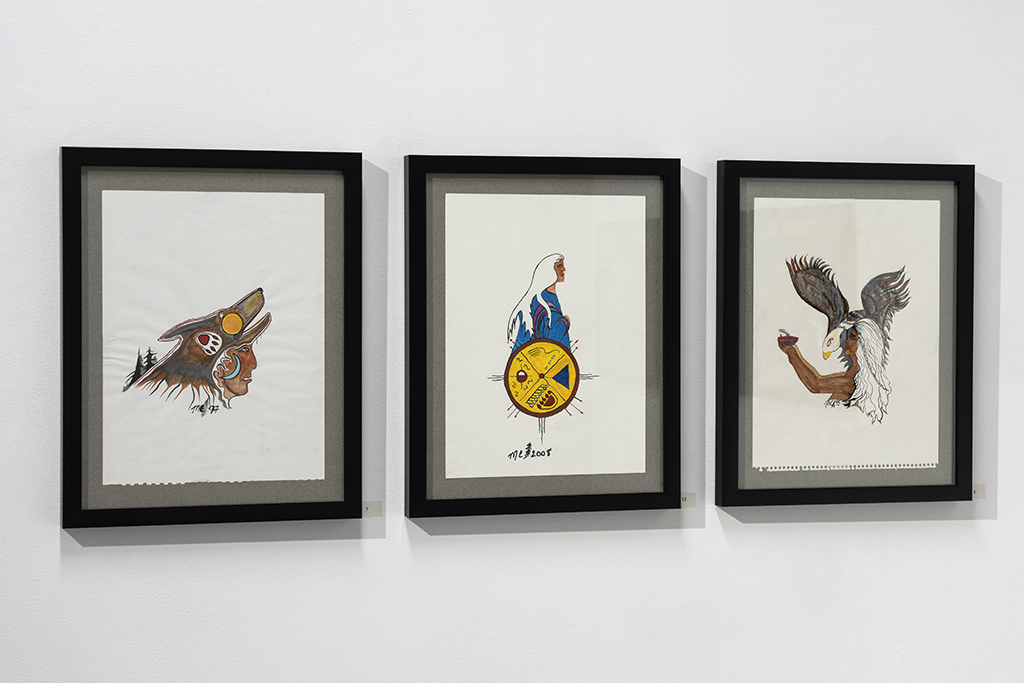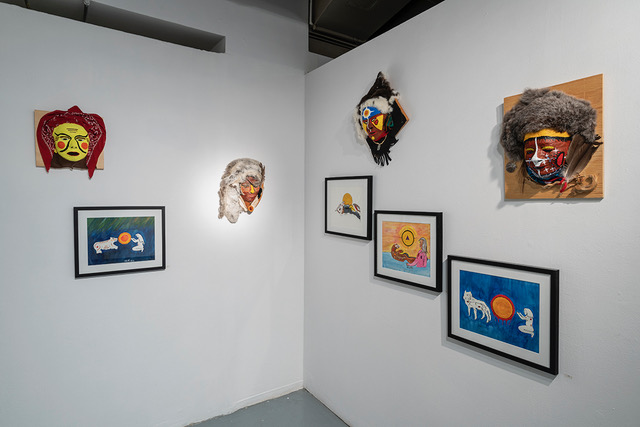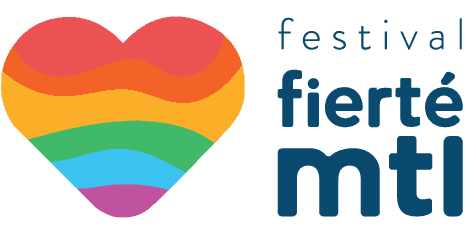The Two-Spirits – The CIAC MTL Event

PRESENTATION
The Centre international d’art contemporain de Montréal (CIAC MTL), in partnership with Montreal First Peoples and Montreal Pride Festivals, has been proud to present THE TWO-SPIRITS OF THE FIRST NATIONS, bringing together Two-Spirit artists and speakers from Quebec and Canada, August 5th – 21st, 2019.
We often use the LGBTQ2S acronym, but what do we know about the “2S”?
Claude Gosselin, director of CIAC MTL and commissioner of this project emphasizes that “while the concept of Two-Spirit is largely debated and understood by people in the Prairies and Western Canada, it is less discussed in Quebec despite some academic work and community actions done here and there. Indeed, there are only a few documentations in French about this reality, which existed long before the arrival of the Europeans in Americas. By bringing this event, we wish that it will create the opportunity to share essential information to people about the recognition of genders, which is an interesting subject currently debated in our society.”
Albert McLeod, codirector of Two-Spirited People of Manitoba, put forward a definition which said: “a Two-Spirited identity is carried by individuals who assume gender variance attitudes, various roles and attributes for personal, spiritual, cultural, ceremonial or social purposes.”
NOTES ABOUT THE TWO-SPIRITS
Two-spirit is part of the traditions of First Nations peoples. It is a concept that refers to an individual with a dual identity, that is, both feminine and masculine, and that reflects the tradition of sexual diversity and gender in First Nation cultures. Long buried in the ancestral memory of these peoples, Two-Spiritedness has been reappearing for the last fifty years among LGBTQ natives who want to reclaim their traditions. In the wake of sexual and gender diversity, Two-Spiritedness allows individuals to find a balance in the roles and attitudes of everyday life. There is also a revival of artistic creativity among Two-Spirited First Nations peoples.
Traditionally, the Two-Spirit identity conferred individuals a supernatural strength that allowed them to play an important role in their community. Many were shamans, healers, storytellers or advisers to the chiefs and elders because they could, through dreams or visions, come into contact with the spirits of nature. We appreciated their great knowledge in singing, dancing and the art of speech. Their advice and foresight were highly respected among their people. In many First Nations peoples, this gender identity was accepted in both men and women. The Two-Spirit individual had the physical attributes of one sex but the behaviors of the other sex.
Everything changed with the arrival of European explorers and missionaries. To astonishment quickly followed repugnance and disgust at such individuals. Having no term for Two-Spirit people, they end up using the word “berdache”, already used to describe a homosexual man who has sex with young partners. Two-Spiritedness was thus reduced to male sexual deviance. Missionaries were the most virulent with regard to those who were acting against nature and questioning the hierarchy of genders. Thus, Father Louis Hennepin, a Franciscan missionary, wrote in 1683: “I saw a boy about seventeen to eighteen years old who had been dreaming he was a girl, so much that he thought he was so; he dressed like girls, & amp; did all the same things that women did.” He even added later: “They are shameless to the point of falling into sin, which is unnatural. They have boys, to whom they give the apparel of girls, by which they reduce them to this abominable use. These boys only deal with women’s chores, & amp; take part in neither hunt nor war.” At the same time, the Jesuit Father Jacques Marquette, who had accompanied the explorer Louis Joliet, found that such behavior perverted the hierarchy of genders and undermined “male perfection”!
Colonisation, Christianisation and forced cultural assimilation have led to the loss of recognition of the Two-Spirit identity among First Nations peoples. Today, Two-Spirit First Nation individuals continue to be victims of sexual and gender discrimination even within their own communities.
START THE VIRTUAL VISIT OF THE EVENT
PROGRAM
EXHIBITIONS
► ADRIAN STIMSON — Naked Napi
► MA-NEE CHACABY — Ma-Nee’s Journey
PERFORMANCES
► ADRIAN STIMSON — Naked Napi Big Game Hunter
► GUY SIOUI-DURAND and SOLEIL LAUNIÈRE — Entre chair et corps: rites de passages
FILMS
► ADRIAN STIMSON — Buffalo Boy Don’t Look East
► JAZMINE SMITH — I Am Me
► TYLER JACOBS — Walk with my Spirits
► MELISSA MOLLEN DUPUIS — Respecting the Wheel
► JERILYNN WEBSTER — The Most Unprotected Girl
LECTURES
► JUNE SCUDELER — Wâkhôtowin in Thirza Cuthand, Kent Monkman and Adrian Stimson’s films
► MA-NEE CHACABY — Storytelling
Adrian STIMSON
Adrian STIMSON
Adrian STIMSON
Ma-Nee CHACABY
Ma-Nee CHACABY
Ma-Nee CHACABY
CURATOR AND PROJECT INITIATOR
CLAUDE GOSSELIN, C.M. (c.v.)
Founder – General and Artistic Director
Centre international d’art contemporain de Montréal
claude.gosselin@ciac.ca
ASSOCIATE CURATOR
ANDRÉ DUDEMAINE
Founder – Director of Cultural Activities
Festival Présence autochtone, Montreal



